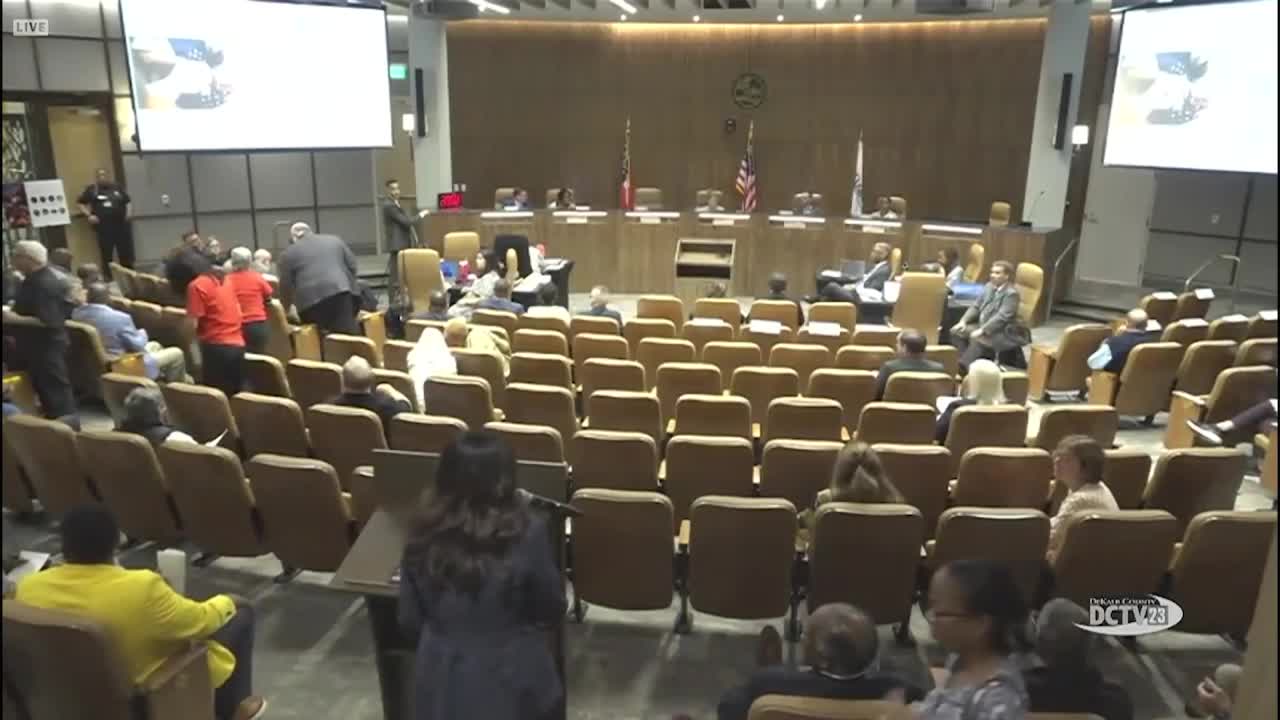Coalition outlines early recommendations for DeKalb unhoused plan: access line, resource guide, low‑barrier shelters and funding options
Get AI-powered insights, summaries, and transcripts
Subscribe
Summary
A DeKalb Behavioral Health Coalition effort to design a countywide unhoused support and services plan presented early recommendations Oct. 7 including a single access line, a consolidated resource guide, expanded coordinated entry and a low‑barrier non‑congregate shelter focused on families.
A cross‑sector team convened by the DeKalb Behavioral Health Coalition reported progress Oct. 7 on a nine‑month plan to improve services for residents who are unhoused or at risk of housing loss. The effort — organized into five work groups — presented early, draft recommendations and asked county leaders to integrate their work with recently hired county housing staff.
Carol Cantore Dodson, who is facilitating the project, said the teams are developing actionable items around five areas: client experience, support services, housing services, technology and measurement, and funding. The groups urged prompt action on improving front‑door access, better coordinating case management and increasing crisis housing capacity.
Key emerging recommendations: - Create a consolidated DeKalb access line (single point of entry) with after‑hours coverage and “warm hand‑offs” to appointments or case managers; - Publish and maintain a single, up‑to‑date DeKalb resource guide so callers and navigators do not reach outdated phone numbers or dead ends; - Expand coordinated‑entry assessment options and increase street outreach and case management capacity; - Pursue a prioritized housing strategy that includes a low‑barrier, non‑congregate shelter focused on families and a shelter oversight/advisory group that includes people with lived experience; - Develop business and technical requirements for a shared technology platform to enable data‑sharing and referrals among providers; - Explore a 501(c)(3) funding collaborative to coordinate philanthropic and public resources.
Cantore Dodson emphasized the project is a work in progress and that the teams are intentionally limiting their recommendations to those they judge achievable in the next 12–18 months. “These are developing recommendations — early and a work in progress — but we felt passionate enough to share them tonight,” Cantore Dodson said.
Why it matters: Commissioners and nonprofit partners said the county lacks a single, reliable “front door” for people in crisis; the coalition’s tests found many resource numbers unanswered. Cantore Dodson described a small test in which callers phoned 31 organizations listed on existing guides and only 12 answered live during business hours, illustrating the problem the plan aims to solve.
Coordination with county staff: Commissioners asked how the coalition’s plan will coordinate with City and county housing staff and recent hires. Cantore Dodson said county housing director Dr. Allison Ferguson and other county staff have been engaged in the work groups and that the coalition intends to align recommendations with county strategy. The presentation also referenced an agenda item and contract with Frontline Response to implement unhoused navigator and warming/cooling center services (contract amount not to exceed $990,000) appearing in the county’s agenda review.
Next steps and timeline: The coalition plans drafts this fall, public review sessions (including an Oct. 11 public input session tied to World Homeless Day), and a final plan in January. Work groups will return to the coalition and to county leaders with full, budgeted recommendations and proposed success metrics.
